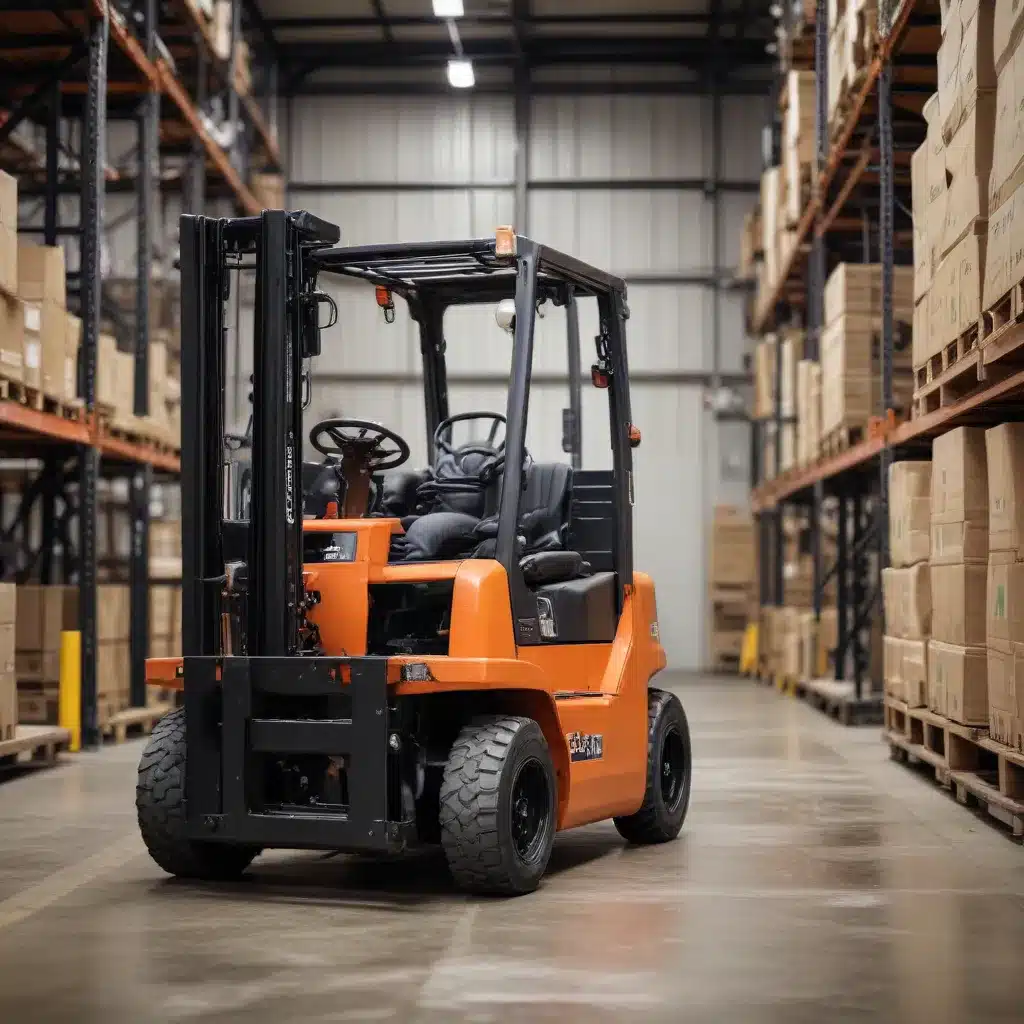
The Importance of Resilience Planning for Forklift Fleets
As a forklift operator or fleet manager, you know that an efficient and reliable fleet is crucial for long-term success and sustainability. However, fleet issues can cause expensive downtime and disrupt productivity. With the growing adoption of electric forklifts and other material handling equipment, resilience planning has become increasingly important for maintaining forklift performance and operator safety.
Resilience planning is the process of preparing your forklift fleet to handle disruptions, whether they’re caused by weather, energy supply issues, or infrastructure problems. By having plans in place, you can ensure your fleet can work around these events without significant delays. Resilience planning is crucial for protecting your fleet from downtime and maintaining productivity, no matter the external environment.
Addressing the Unique Challenges of Electric Forklifts
The growing popularity of electric forklifts means adjusting your operations to fit their needs. While electric forklifts offer excellent efficiency and sustainability, their reliance on lithium batteries and charging infrastructure introduces new challenges that resilience planning can help address.
Some common challenges faced by electric forklift fleets include:
-
Limited access to charging stations: Ensuring your facility has enough charging infrastructure to meet the demands of your fleet is crucial. Resilience planning can involve identifying backup power sources or developing strategies to optimize charging schedules.
-
Harsh weather conditions: Snow, ice, and extreme temperatures can impact the performance and charging capabilities of electric forklifts. Resilience planning may include strategies like using tire chains, installing heaters, or maintaining adequate indoor charging facilities.
-
Vulnerability of the local power grid: Power outages or grid instability can disrupt your forklift charging and operations. Resilience planning should address backup power solutions, such as generators or energy storage systems, to keep your fleet running during these events.
By addressing these unique challenges through resilience planning, you can keep your electric forklift fleet in top condition, avoid breakdowns or outages, and maintain high productivity.
Maximizing Forklift Uptime and Operator Safety
Resilience planning not only protects your fleet but also benefits your forklift operators. When your fleet is well-maintained and has backup power solutions in place, operators can drive with more peace of mind, reducing stress and potential safety hazards.
Importance of Preventive Maintenance
One of the key aspects of resilience planning is maintaining your forklift fleet through regular preventive maintenance. Skipping maintenance can lead to the buildup of wear and tear, affecting forklift performance, reducing battery life, and causing breakdowns.
Regular maintenance schedules help keep your forklifts in top condition, reducing the likelihood of unexpected downtime. When a breakdown does occur, your fleet will spend less time off the road, leading to increased productivity and cost savings.
Maintaining your forklift tires is also crucial for resilience. Proper tire maintenance, including regular inspections and appropriate tire selection for your operating environment, can help improve fuel efficiency, enhance workplace safety, and boost overall productivity.
Enhancing Operator Safety and Wellbeing
Resilience planning also helps reduce operator stress and improve safety. When operators know that the fleet is well-maintained and they have backup power solutions, they can focus on their tasks without worrying about potential breakdowns or charging issues.
Investing in resilience planning demonstrates that you prioritize your operators’ wellbeing and are committed to providing them with a safe and reliable work environment. This can lead to improved morale, job satisfaction, and overall productivity.
Forklift Industry Trends and the Importance of Resilience
As the forklift industry continues to evolve, resilience planning will become increasingly crucial for maintaining a competitive edge. With the growing adoption of electric forklifts and the need to adapt to changing market conditions, resilience planning is no longer a luxury but a necessity for fleet managers and forklift operators.
The rise of electric vehicle (EV) adoption in the broader transportation industry is a prime example of the need for resilience planning. As more electric forklifts hit the market, the demand for reliable charging infrastructure and backup power solutions will continue to grow. Forklift operators and fleet managers who invest in resilience planning will be better equipped to navigate these changes and maintain productivity.
Moreover, resilience planning can also help forklift operations adapt to other industry trends, such as the increasing focus on sustainability and environmentally-friendly practices. By incorporating resilience strategies that prioritize energy efficiency, renewable power sources, and responsible resource management, forklift operators can demonstrate their commitment to environmental stewardship and position themselves as leaders in the industry.
Conclusion: Embracing Resilience for a Competitive Edge
In the ever-evolving forklift industry, resilience planning is no longer a luxury but a necessity. By addressing the unique challenges of electric forklifts, prioritizing preventive maintenance, and enhancing operator safety and wellbeing, forklift operators and fleet managers can maintain a competitive edge and ensure the long-term success and sustainability of their operations.
Embracing resilience planning will not only protect your fleet from disruptions but also unlock numerous benefits, such as increased productivity, reduced costs, and improved operator satisfaction. As the industry continues to evolve, resilience will be the cornerstone of a successful forklift operation, empowering you to build a future that is both productive and sustainable.
To learn more about forklift reviews, safety guidelines, maintenance, and industry trends, be sure to check out Forklift Reviews. Our expert team is dedicated to providing the latest insights and practical tips to help you optimize your forklift fleet and achieve your operational goals.

